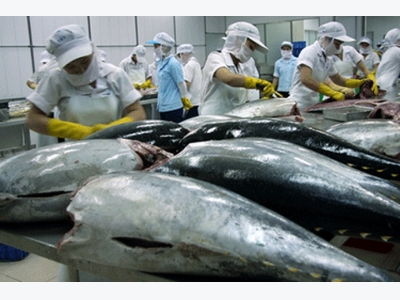Quality key for Vietnam in coming zero-sum game US market

Vietnamese producers must ensure the quality of their produce as the US starts to become a “zero-sum game” of a market, warned consultant Carson Roper.While US consumption of salmon is trending up over the past few years, and still, its seafood consumption is static.
“When the pie isn’t growing, competition for a piece of that pie gets fierce,” he said.
“Focusing on the quality of your offering is key, because if someone else can get one over on you by being better, they will.”A ‘zero-sum game’ is one in which one party can only win to the detriment of others.
He noted Amazon’s recent commitment to lowering prices on salmon and tilapia in Whole Foods, and noted the latter species was advertised on the site as being “not muddy-tasting like pond-raised” fish.
In Europe, meanwhile, Roper noted that consolidation among retailers — for instance the relatively recently-formed Ahold-Delhaize group — meant retail negotiating power was strengthening, and suppliers’ was therefore on the wane.
Related news
 Shrimp exports swell despite COVID-19 pandemic
Shrimp exports swell despite COVID-19 pandemic Despite the difficulties caused by the COVID-19 pandemic, shrimp exports have increased remarkably thanks to efforts made by both authorities and businesses.
 Squid, octopus exports to China on the rise
Squid, octopus exports to China on the rise Shipments of these commodities to China last year rose by nearly 61% from 2019 and by 21% year on year in the first four months of 2021
 Aquatic exports to China plunge amid COVID-19 threats
Aquatic exports to China plunge amid COVID-19 threats Vietnamese seafood exports to China in April suffered a decline of 11%, and this downward trajectory continued in May with a fall of 22%
 Seafood companies expect higher revenue on brighter prospects
Seafood companies expect higher revenue on brighter prospects Large seafood enterprises have set higher revenue and profit targets this year thanks to positive growth prospects of the seafood export market, especially the
 Cà Mau posts growth in shrimp exports despite pandemic
Cà Mau posts growth in shrimp exports despite pandemic Shrimp exports of the southernmost province of Cà Mau grew in the first half of this year despite the impact of the COVID-19 pandemic